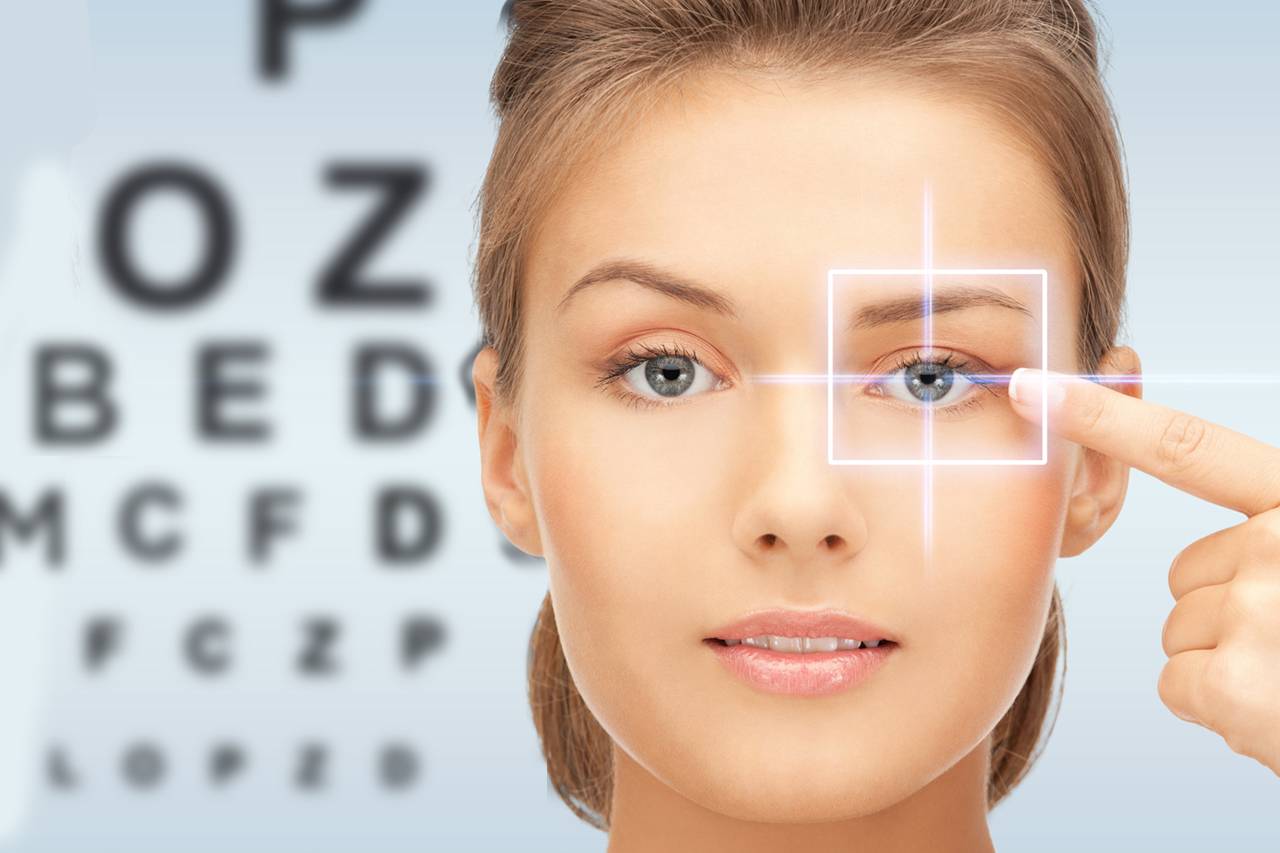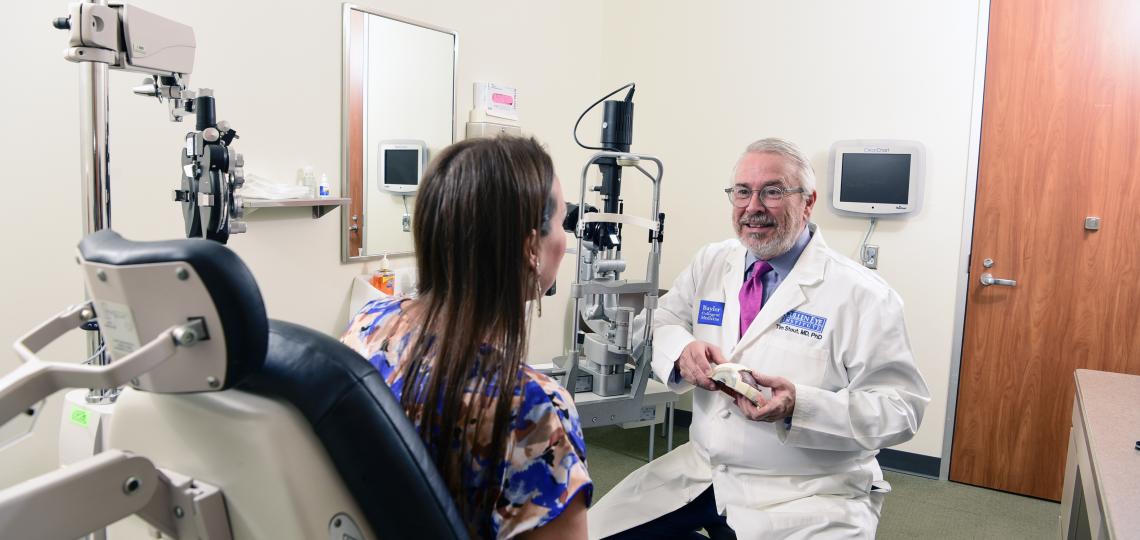Andalusia Eye Center: Introducing Vision Look After Community Wellness
Andalusia Eye Center: Introducing Vision Look After Community Wellness
Blog Article
Is Refractive Surgery Right for You? Variables to Take Into Consideration for Better Eyecare
In the world of eye treatment, the choice to undertake refractive surgical procedure is a substantial one that demands thoughtful consideration. From the intricacies of one's eye health to the details of individual expectations and everyday practices, each facet holds relevance in the more comprehensive landscape of refractive surgical procedure candidacy.
Eye Health Analysis
When thinking about refractive surgery, a thorough eye health and wellness analysis is vital to examine the suitability of the procedure for each and every person. andalusia pediatrics. This analysis includes a series of tests and exams conducted by an eye care expert to identify the overall health of the eyes, the presence of any kind of hidden conditions, and the security of the refractive mistake
Throughout the evaluation, various variables are considered, such as the patient's clinical background, existing eye prescription, corneal thickness, student size, and tear film high quality. These evaluations help to determine any contraindications to refractive surgical treatment, such as corneal abnormalities, cataracts, or unattended eye infections. Additionally, the evaluation assists to handle individual expectations pertaining to the potential results of the surgical treatment based upon their one-of-a-kind eye qualities.
Ultimately, the eye health and wellness evaluation is essential in guaranteeing the security and performance of refractive surgery, as it gives important insights into the individual's eye health status and aids figure out the most ideal therapy choices for accomplishing optimum visual end results. (neurologist andalusia)
Way Of Living Evaluation
A detailed way of living evaluation is integral in determining the suitability of refractive surgery for an individual's visual correction requirements. Way of life elements such as occupation, leisure activities, and everyday tasks play a critical role in the decision-making process relating to refractive surgical procedure.
Moreover, way of living habits such as sporting activities participation, outdoor tasks, or also skin care regimens can affect the healing procedure and total success of refractive surgical procedure. People that engage in get in touch with sports might need to take extra safety measures to protect their eyes throughout the healing period. Additionally, individuals with considerable sun direct exposure might need extra post-operative care to stop issues. By conducting a detailed way of life assessment, eye care professionals can customize their recommendations and therapy plans to satisfy the special requirements of each individual, ultimately leading to boosted aesthetic outcomes and satisfaction.
Expectation Alignment

Setting realistic assumptions entails detailed pre-operative conversations between the eye doctor and the client. The doctor must transparently connect the possible threats, benefits, and restrictions of the treatment (cardiologist andalusia). Clients need to comprehend that while many individuals achieve 20/20 vision or much better adhering to refractive surgical treatment, some might still need glasses for sure tasks like reading or driving at night. Taking care of these expectations aids avoid disappointment and frustration post-surgery, causing a more positive overall experience Continued for the person.
Threat Analysis

Variables that may increase the danger of problems include age, certain clinical problems like autoimmune diseases, unstable vision prescription, slim corneas, and impractical individual expectations. Additionally, choosing a experienced and competent specialist, adhering to pre and post-operative care guidelines diligently, and disclosing any appropriate case history can aid reduce risks.
To minimize the chance of difficulties, ophthalmologists carry out thorough pre-operative evaluations to determine any kind of contraindications to surgical procedure. They also go over the potential threats and benefits with individuals during the consultation procedure. By participating in open interaction and shared decision-making, both the eye doctor and the patient can interact to determine if refractive surgical procedure is the ideal option based on specific risk profiles and desired outcomes.
Assessment Importance
Thinking about the vital role of educated decision-making in evaluating threats and possible complications in refractive surgical procedure, the assessment Visit Website procedure holds substantial relevance in guiding patients in the direction of optimal end results. Throughout the appointment, the eye doctor assesses the person's eye health and wellness, refractive mistakes, and overall viability for surgical treatment. This first assessment is essential in figuring out one of the most ideal treatment for every individual, thinking about variables such as corneal density, student dimension, and existing eye conditions.
Furthermore, the assessment functions as an opportunity for individuals to review their assumptions, problems, and any kind of concerns they may have regarding the surgery. Clear communication between the person and the surgeon is vital to guarantee sensible assumptions and a detailed understanding of the possible risks and benefits involved.
Additionally, the examination allows the cosmetic surgeon to discuss the different surgical alternatives offered, their particular results, and the post-operative care needed. This extensive conversation encourages individuals to make well-informed choices regarding their eye treatment, resulting in better satisfaction and results post-surgery.
Verdict
In conclusion, individuals taking into consideration refractive surgical treatment must undertake a thorough eye health examination, see assess their way of living practices, align their assumptions with possible outcomes, assess the affiliated dangers, and prioritize consultations with eye treatment specialists. These variables play a crucial duty in identifying the viability of refractive surgical procedure for each individual, guaranteeing optimum results and contentment with the procedure.
Individuals thinking about refractive surgery frequently have high assumptions concerning the results, expecting ideal vision without the demand for glasses or get in touch with lenses. While refractive surgical procedure can considerably improve vision and minimize dependence on visual help, it is essential for people to recognize that outcomes may differ based on specific aspects such as the degree of refractive error, corneal thickness, and overall eye health.
By involving in open communication and shared decision-making, both the ophthalmologist and the person can work together to establish if refractive surgery is the best selection based on individual risk accounts and wanted results.
Considering the vital function of informed decision-making in assessing threats and possible problems in refractive surgery, the assessment process holds substantial significance in assisting individuals in the direction of optimum outcomes. During the appointment, the eye doctor examines the patient's eye health, refractive mistakes, and general suitability for surgical treatment.
Report this page